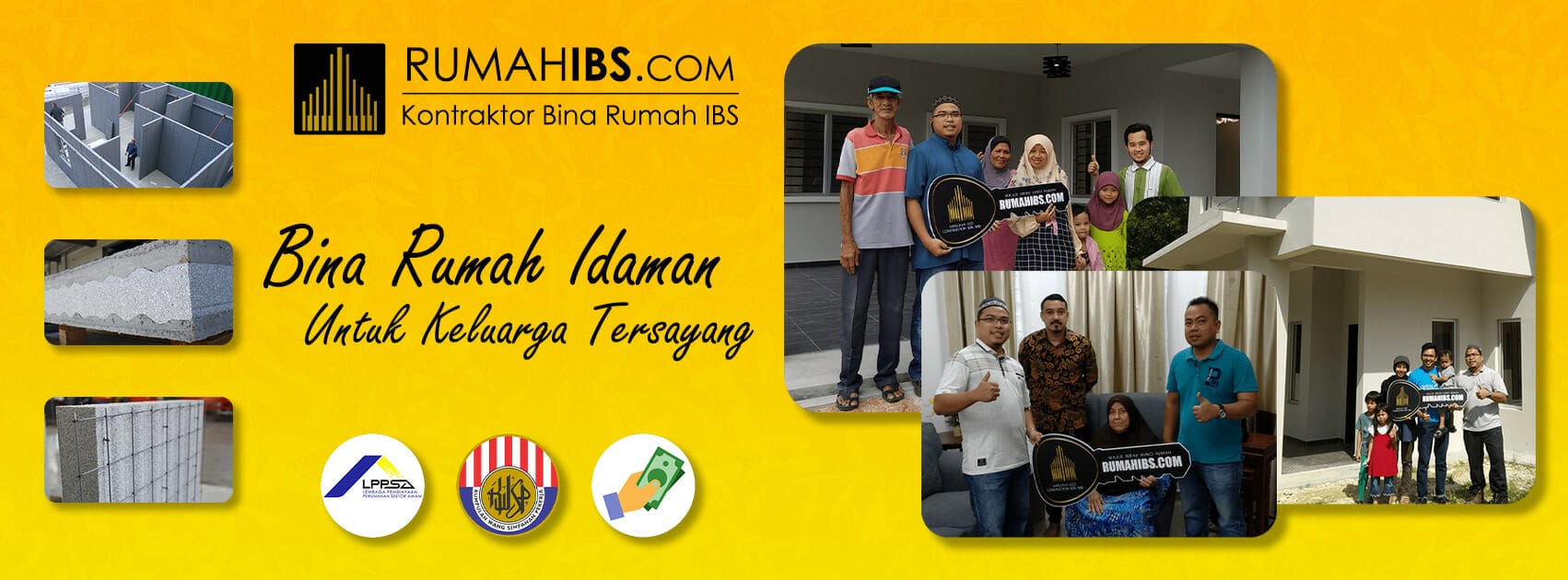- What are the different types of home loans available in Malaysia?
- What are the interest rates like for home loans in Malaysia?
- What is the process of getting a home loan in Malaysia?
- What documents do I need to apply for a home loan in Malaysia?
- Can I get a home loan if I’m self-employed in Malaysia?
- How much downpayment is needed for a home loan in Malaysia?
- Are there any government schemes that help first time home buyers in Malaysia?
- How do I choose the best home loan package in Malaysia?
- What fees and charges should I expect with a home loan in Malaysia?
- How can I get pre-approved for a home loan in Malaysia?
What are the different types of home loans available in Malaysia?
When it comes to home financing in Malaysia, potential home buyers have several options to choose from. The most common types of home loans available in the Malaysian market are:
- Conventional Home Loans – These are traditional home loans offered by banks and financial institutions. They typically come with higher interest rates but less strict eligibility criteria.
- Islamic Home Financing – Also known as Islamic mortgages, these comply with Shariah law. The interest is replaced with profit rates and the financing uses concepts like ijara, musharaka, etc.
- Government Housing Loans – These are subsidized home loans offered by the government to assist first time home buyers and those in the low-moderate income group. Criteria is income-based.
- Developer Interest Bearing Scheme (DIBS) – This scheme allows developers to bear the interest charges on the home loan during the construction period. It lowers initial repayments.
- Step-Up Financing – The interest rate is fixed at a low level for the first few years and then steps up after the period ends. Helps ease initial repayments.
- Split Financing – Combines both conventional and Islamic home financing options. Allows buyers to leverage benefits of both.
Factors to consider when choosing between the different home loan types:
- Interest rates and profit rates
- Monthly repayments amount
- Required downpayment amount
- Loan tenure offered
- Early repayment fees and penalties
- Eligibility criteria and income thresholds
- Additional legal fees and charges
Discuss with a financial advisor to choose the best home financing option tailored to your budget and needs. Do thorough research before committing.
What are the interest rates like for home loans in Malaysia?
Interest rates play a crucial role in determining the affordability and total cost of home loans in Malaysia. Here are some key points on current interest rates for home financing:
- For conventional home loans, interest rates range between 3.6% to 5% depending on the banks. Rates have been on a downtrend.
- Islamic home financing profit rates range from 3.5% to 4.9%. Also on downward trend.
- Base Rate (BR) and Base Financing Rate (BFR) dictate interest rates. BR is currently 2.75% and BFR is 6.3%.
- Overnight Policy Rate (OPR) determined by Bank Negara also influences interest rates. OPR is 2.75% after drops in 2020.
Banks offering lowest rates currently:
- Maybank – Base Lending Rate (BLR) as low as 3.6%
- Public Bank – BLR as low as 3.62%
- CIMB – BLR as low as 3.65%
- RHB – BLR as low as 3.77%
- HSBC – BLR as low as 3.81%
Factors affecting interest rates:
- OPR and benchmark rates set by Central Bank
- Credit risk profile of borrower
- Loan amount and tenure
- Collateral provided (e.g. property)
- Campaigns and promotions by banks
Tips to enjoy lower interest rates:
- Maintain a good credit score and payment history
- Provide larger downpayment amount
- Opt for lock-in periods for rates
- Negotiate with multiple banks for best deal
Monitor rate trends and shop around before committing to a home loan. A lower rate can lead to massive savings over the long tenure.
What is the process of getting a home loan in Malaysia?
Purchasing a home is a major milestone for many Malaysians. Here is an overview of the key steps involved in securing a home loan:
1. Understand loan options
- Research different banks and loan packages
- Consider conventional vs Islamic loans
- Understand terms like BLR, BFR, OPR
2. Determine budget and financial position
- Factor in income, expenses, existing loans, credit history -Narrow down maximum loan amount you can qualify for
3. Find the property
- Shortlist property types, locations based on budget
- Engage real estate agent to view listings
- Research information like tenure, facilities, neighbourhood etc
4. Select the right home loan package
- Shortlist 2-3 best home loan options
- Compare interest rates, fees, charges, terms
- Opt for pre-approval if required
5. Submit loan application
- Provide documents like IC, pay slips, EPF statement
- Application will be assessed by bank based on criteria
6. Obtain approval
- Wait for official bank approval letter
- Bank will state loan amount, interest rate, tenure
7. Legal and valuation process
- Bank will appoint lawyers and valuers
- Sale and Purchase Agreement signed
- Documentation and stamping
8. Drawdown and release of funds
- Mortgage will be created and registered
- Loan amount disbursed into account
- Finance the balance purchase price
Be sure to prepare all required documents upfront. Engage a lawyer for guidance during the S&P signing.
What documents do I need to apply for a home loan in Malaysia?
Preparing the right documents is key to having a smooth home loan application process. Here are the main documents required by banks when applying for a home loan in Malaysia:
- Identity card (IC) – Certified copy of applicant’s IC (front and back). Essential for identity verification.
- Latest pay slips – Usually 3 months of latest salary slips. To assess income level.
- Employment letter – Letter from company confirming employment. States position, years of service, income.
- Latest EPF statement – Statement from Employees Provident Fund (EPF). To prove PF contributions.
- Bank statements – Last 6 months statements of all bank accounts. To show savings history and transactions.
- Other income proof – Documents like remisier voucher, dividend slip, rent agreement if any additional income.
- Tax returns (Borang B) – Last 2 years of income tax assessment forms. To declare total income.
- Credit report – Applicants need to authorise bank to run credit bureau report.
- ** Marriage certificate** – If applying jointly with spouse. Certified copy needed.
Other documents like PTPTN statement, ASB certificate, etc may be required case by case. Having all documents ready in advance will fasten home loan approval. Don’t hesitate to ask bank for requirements checklist.
Can I get a home loan if I’m self-employed in Malaysia?
Self-employment and running your own business is becoming increasingly common in Malaysia. But does being self-employed affect your chances of getting a home loan?
The quick answer is yes, you can still qualify for a home loan if you are self-employed. However, there are some additional items to take note of:
- You need to provide proof of your business and income. That means audited financial statements, bank statements, and details on the nature of your business.
- Most banks require self-employed applicants to have been operating for at least 3 years. This is to evaluate cash flow and earnings.
- Your credit score plays an even bigger role. Maintain low debt levels and a spotless repayment history.
- Expect to make a larger downpayment of at least 20% to 30%. This lowers the risk for banks.
- Be prepared to be charged a higher interest rate due to the higher risk. Rates can be 0.5% to 1% higher.
- Having additional collateral like fixed deposits or property can improve loan eligibility.
While requirements are stricter, self-employment should not deter you from applying for a home loan in Malaysia. Start preparing documentation early and reach out to banks that accept self-employed applicants.
How much downpayment is needed for a home loan in Malaysia?
The downpayment is a critical component that home buyers need to factor in when taking a home loan in Malaysia. Here are some key points:
-
The minimum downpayment is 10% of the property price for first-time home buyers. For subsequent homes it is 20%.
-
With a 10% downpayment, buyers need to pay the remainder 90% amount via mortgage loan.
-
It is possible to qualify for a 100% loan but very stringent criteria applies. Not common.
-
While 10% is the minimum, putting down a higher downpayment like 20% or 30% has its benefits:
- Lower overall interest cost as loan amount is smaller
- Reduces the loan tenure needed
- Higher chances of getting loan approval
- Lower monthly repayment amounts
-
Banks may require a higher downpayment percentage for:
- Self-employed individuals
- Second or subsequent residential property purchase
-
The source of the downpayment must be clearly identified and supported by documents.
Always go for the highest downpayment amount possible. This provides a buffer and makes the home loan much more manageable. Speak to banks to get specific downpayment requirements.
Are there any government schemes that help first time home buyers in Malaysia?
The Malaysian government provides various assistance schemes and incentives to help citizens realise the dream of owning their first home. Here are some key schemes available:
My First Home Scheme (TPM)
- Provides a subsidy of up to RM2,500 a year towards mortgage instalments
- For first home buyers with household income RM3,000 and below
MyDeposit Scheme
- Government provides deposit financing of up to 10% of purchase price
- For households earning RM2,500 and below
Step Up Conventional Scheme
- Home loan with fixed discounted rate for first 5 years
- After the discount period, rate converts to normal BLR
Youth Housing Scheme
- Provides 10% downpayment financing for unmarried youths
- Must be earning RM2,500 and below
PPA1M Housing
- Government funded affordable housing program for first timers
- Homes priced from RM90,000 to RM300,000
Do check eligibility criteria before applying for these schemes. Getting assistance and incentives makes purchasing the first home much easier for buyers in Malaysia.
How do I choose the best home loan package in Malaysia?
With an array of home financing options available, it can be daunting to decide which loan package works best for your needs. Here are some tips for choosing the best home loan in Malaysia:
- Compare interest rates – This impacts your monthly repayments over up to 40 years. Even a small rate difference can add up.
- Factor the tenure – Loan amount will dictate how long you take to repay the loan. Look at loan tenure too.
- Check prepayment fees – Some banks charge fees for early or excess repayments. Choose flexible options.
- Look for freebies – Several banks offer incentives like free legal fees, valuation, stamp duty, etc.
- Fixed or variable rate – Weigh benefits and risks of a fixed vs variable rate loan package.
- Penalty for late payment – Understand penalties if you miss payments on your loan instalments.
- Eligibility criteria – Choose a package with criteria you comfortably meet, especially income level.
- Islamic or conventional – Compare differences and make the choice that aligns with your preference.
- Customer service – Good after-sales service provides support over the long term.
Take your time and thoroughly assess all pros and cons before signing up. Partner with a trusted financial advisor to guide you towards the most beneficial home financing option.
What fees and charges should I expect with a home loan in Malaysia?
Taking a home loan involves more than just the property price and interest cost. Here are some common fees and charges to be aware of when financing a home purchase in Malaysia:
- Processing fee – One time fee for processing the loan application, usually around 0.5% of loan amount.
- Stamp duty – One time duty payable to government based on loan amount, ranges from 0.5% to 3%.
- Legal fee – Incurred for engaging a lawyer for property conveyancing and drafting agreements, about 1% to 1.5% of property value.
- Valuation fee – Banks will appoint valuer to conduct valuation report. Cost is RM300 to RM500.
- Mortgage Reducing Term Assurance (MRTA) premium – Yearly insurance premium to cover the home loan outstanding amount. Typically 0.2% to 0.4% of loan amount.
- Disbursement fee – Admin fee for actual disbursement of loan into the borrower’s account, usually RM100 to RM500 per disbursement.
- Early settlement or exit fee – Levied if borrower fully redeems loan before end of tenure, around 1% to 3% of outstanding loan amount.
- Late payment charges – Typically 1% on overdue loan instalment if not paid on time.
Be sure to take the additional fees and costs into consideration when budgeting for the home purchase. Ask your bank to explain all charges upfront.
How can I get pre-approved for a home loan in Malaysia?
Getting a pre-approval letter for a home loan from banks in Malaysia is highly recommended. Here are some tips on obtaining one:
- A pre-approval indicates to sellers you are a serious buyer with financing ability.
- It allows you to secure a property quickly with proof of financing already in place.
- You’ll know precisely the loan amount, rate, and tenure you qualify for.
- Helps narrow down eligible properties that suit your approved budget.
To get pre-approved:
- Contact banks and submit basic documents for assessment like IC, slips, EPF statement.
- Ensure you meet the minimum eligibility criteria set by banks. This includes income level, credit score, years in employment etc.
- Be ready to provide information like intended property type, price range, location, tenure.
- If self-employed, have financial statements and business registration documents ready.
- Banks will evaluate your profile and perform credit assessment.
- If approved, bank will issue Letter of Offer valid for a defined period.
With the pre-approval done upfront, you can shop for your dream home and make an offer immediately once you find one.
Key Takeaways
- Conventional and Islamic home financing options available with different interest rates
- Process involves research, budgeting, shortlisting property, selecting loan package, applying, and legal procedures
- Documents like IC, pay slips, EPF statement needed for home loan application
- Self-employed applicants can qualify but need financial records and higher downpayment
- Putting down larger downpayment amount lowers interest cost over tenure
- Government schemes exist to assist eligible first time buyers with deposit financing and subsidies
- Compare interest rates, prepayment fees, eligibility criteria when choosing loan package
- Other fees payable include processing fee, stamp duty, legal fee, valuation fee, MRTA, etc
- Getting pre-approved expedites process as proof of financing already in place
Conclusion
In conclusion, home buyers in Malaysia have access to varied financing options, with both conventional and Islamic loans available. While interest rates are competitive, proper due diligence is required to find a home loan package that best suits one’s budget and needs. Government incentives provide an extra nudge for first-timers. Pre-planning by getting pre-approved smooths the mortgage application process and provides assurance to sellers on a buyer’s ability to finance. Do extensive research and number crunching before taking the plunge of purchasing a home via mortgage financing.
kontraktor rumah
bina rumah
pinjaman lppsa
pengeluaran kwsp
spesifikasi rumah
pelan rumah
rekabentuk rumah
bina rumah atas tanah sendiri
kontraktor rumah selangor









